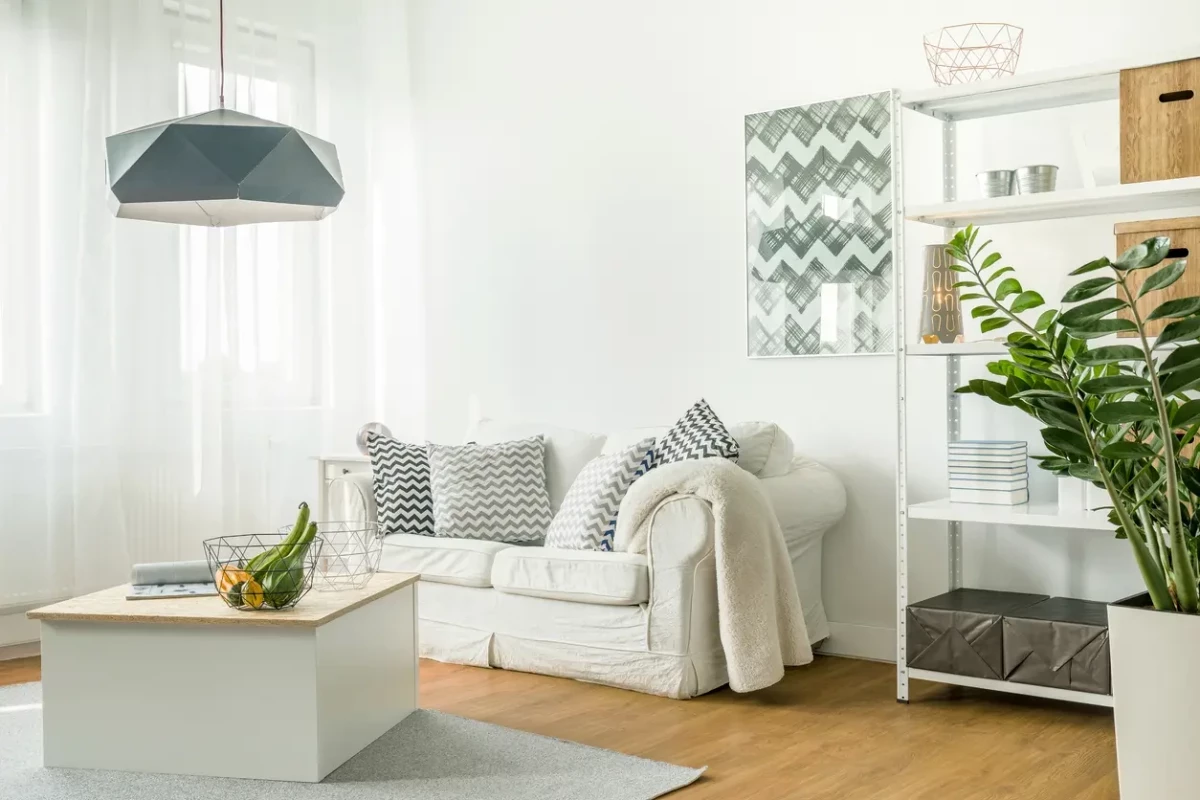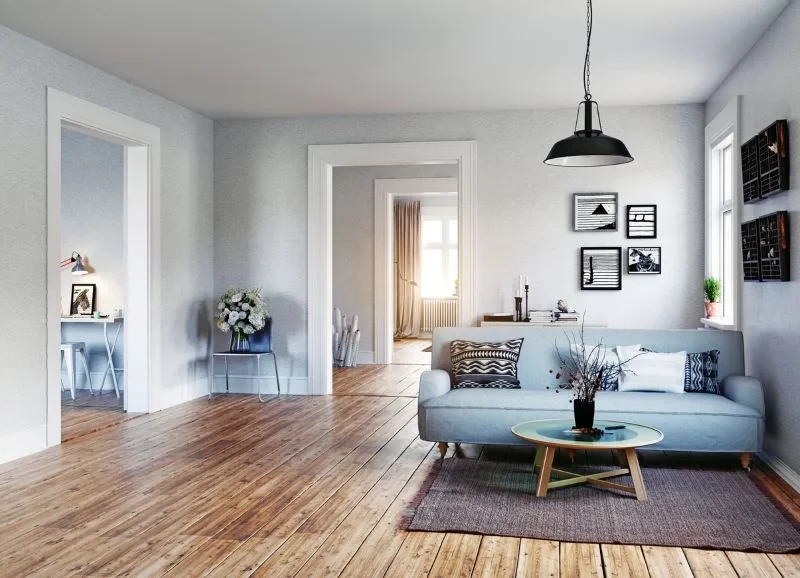LMNP registration: guide to legal obligations

LMNP registration concerns investors in furnished rentals in new or old properties, long or short term. This process is necessary to legally justify the LMNP activity, have access to tax benefits, depreciate assets and expenses and better monitor its accounting.
Why do you need to register as a LMNP?
Registration as a Non-Professional Furnished Rental Company (LMNP) is a mandatory step for any owner who wishes to benefit from the tax advantages offered by this status.
The legal framework for registration
The 2021 Finance Act, which, in its article 155 IV of the General Tax Code (CGI), requires all owners carrying out a non-professional furnished rental activity to register. Since January 1, 2023, the registration procedure has been simplified and centralized via the website of the National Institute of Industrial Property.
The aim is to facilitate administrative procedures, but also to set up effective monitoring of owners of furnished properties. From now on, obtaining a SIRET number is an essential step for all lessors. It will be accompanied by registration formalities to comply with legal obligations.
The advantages of LMNP registration
In addition to being an obligation, registering as a LMNP has significant tax advantages. The owner can choose between two tax regimes, including the micro-BIC regime or the actual regime. The latter also allows for more advanced tax optimization.
The actual system allows you to deduct not only the expenses related to the property (maintenance costs, loan interest), but also to depreciate the value of the property and the furniture. It considerably lowers the tax base. Chartered accountants will be able to carry out a simulation between the two regimes to assess the real advantage of this approach.
THE INSEE statistics show that in 2024, the number of LMNPs in activity will continue to increase. Here we see the attractiveness of the regime. Studies also show that owners who opt for depreciation under the real regime obtain a higher net profit, in particular thanks to a significant reduction in their taxable base.
How to complete the LMNP registration process?
The P0i form and the INPI one-stop shop
Since January 1, 2023, registration has been carried out centrally on the platform of the National Institute of Industrial Property (INPI) via the site procedures.inpi.fr.
-
First, you need to create a personal account on the platform.
-
Once logged in, the owner must complete and submit the P0i form. (It is specifically designed for the registration of furnished rental activities.)
This form allows you to declare your activity to the tax authorities and generate a SIRET number. It will serve to formalize rental management under LMNP status . It will also make it possible to identify the owner as the operator of a commercial activity in the eyes of the administration.
Documents required for registration
Several documents are required to complete this process, starting with:
-
proof of identity (ID card or passport)
-
a sworn statement declaring the activity's compliance with the legislation.
For joint owners, an additional form, the FMCB, must be completed, specifying the management arrangements between the co-owners.
The time taken to receive the SIRET number varies by region and can range from 10 to 25 days depending on the volume of requests and local specificities. This estimate is confirmed by INSEE data, which indicate regional differences in processing times for files.
The official INPI documentation provides detailed information on the process and the documents to be provided. It thus guarantees a simplified and transparent approach for future LMNP owners.
LMNP tax regimes: which one to choose after registration?
Once the registration as a Non-Professional Furnished Rental (LMNP) has been completed, the tax regime will need to be chosen. This decision can have a direct impact on the profitability of the rental investment. The two main regimes available to owners are:
-
the micro-BIC regime
-
the simplified real regime .
Micro-BIC regime or simplified real regime?
The micro-BIC scheme is aimed at owners whose rental income does not exceed €72,600 per year. This scheme is very interesting, since the owner benefits from a flat-rate deduction of 50% on rental income. This will cover expenses (maintenance, management fees, etc.).
This also means that half of the rental income is not taxed. It is therefore suitable for investors who do not have large expenses to deduct or who receive relatively low rents.
The simplified actual regime , for its part, becomes particularly advantageous when the income exceeds the threshold of €72,600 or when the rental-related charges are high. This is the case for furnished properties of significant value.
This system allows you to deduct all actual expenses, such as:
-
the works,
-
loan interest,
-
insurance,
-
depreciation of real estate and furniture over several years.
According to estimates, around 90% of investors benefit from better tax optimization by choosing the simplified real regime. It turns out that the depreciation applied to the property often makes it possible to reduce or even cancel the taxation on rental income.
The impact of rental income on tax returns
Rental income must be included in the annual income tax return.
Under the micro-BIC regime, owners declare their income directly after applying the reduction.
On the other hand, under the real regime, they must complete a tax return , which includes in particular an accounting balance sheet detailing depreciation and deductible expenses . This involves more reporting obligations, but also allows for better management of income and expenses. This often requires the help of a specialized accountant.
According to INSEE data, around 60% of LMNP owners opt for the real regime, because it is generally more advantageous in the long term. In particular for properties of significant value or rentals generating significant charges.
Simulations show that, in many cases, the actual system allows for better rental profitability, in particular thanks to the combined effect of the deduction of charges and the depreciation of the property over several years.
Common mistakes to avoid in LMNP registration
When registering as a Non-Professional Furnished Rental Company (LMNP), certain common mistakes can lead to administrative, tax and even legal complications. To avoid them, here is what not to do and the consequences.
Not declaring income from furnished rentals
One of the most serious mistakes is not declaring income from furnished rentals. As a LMNP, the income generated must be included in the annual tax return under the micro-BIC or real regime. It is up to the owner to choose.
If the owner does not make this declaration, he is exposed to severe tax penalties. According to the official tax website, the administration can impose penalties corresponding to 10% to 80% of the amount of undeclared taxes. They will be assessed depending on the seriousness of the situation and the repetition of the breaches. There are also late payment interests which will be applied and which will further increase the amount due.
In the event of a tax audit, the risk of tax adjustment is high if rental income is not correctly declared. The owner could then be forced to pay the uncollected taxes, with the corresponding penalties. It is therefore essential to comply with tax obligations, even if the rental income is modest. This will help you avoid heavy penalties.
Forgetting to renew the declaration when adding a new property
Another common mistake is not re-declaring a new property that is added to a rental portfolio. Each property rented furnished must be declared individually. If an LMNP owner acquires a new property that he rents furnished, it is mandatory to update the tax file to include this property in the LMNP regime.
The SIRET number assigned during the initial registration only covers the property or set of properties declared at the time of the application. When a new property is added, it is necessary to update this number or, in some cases, obtain one new for each property. This step is necessary to remain compliant with current regulations and avoid possible penalties for not declaring new properties.
SIRET update process for multiple properties
La mise à jour du numéro SIRET, en cas de multi-propriétés en location meublée, s’effectue via les mêmes procédures que l’immatriculation initiale. Le propriétaire doit se connecter au site de l’INPI (Institut National de la Propriété Industrielle) pour compléter un nouveau formulaire P0i ou une demande spécifique d’ajout de bien.
The process also involves submitting supporting documents. Failure to do so can lead to administrative complications and tax penalties.
Accounting management and simulation to optimize your taxes
When investing as a Non-Professional Furnished Rental (LMNP) , accounting management can quickly become complex due to the many tax rules and accounting obligations. In order to optimize your taxes while ensuring the compliance of your declarations, it is advisable to call upon a specialized chartered accountant. Why is this solution frequently recommended? How can it help you make the most of your tax benefits?
Why choose outsourced accounting management?
Outsourcing accounting management has many advantages, particularly in the context of an LMNP investment. Here, the tax and accounting aspects can be tricky to master. Using an accountant allows you to benefit from maximum tax optimization thanks to complete support for income declaration and depreciation monitoring.
The average cost for outsourced accounting management is around €250 per year for a first property, and around €108 per additional property . This rate covers all the necessary accounting procedures, including:
-
preparation of tax returns,
-
management of depreciation of real estate and personal property,
-
filing tax returns on time.
The accountant also helps anticipate possible errors that could lead to tax penalties. In this way, he ensures that rental income is correctly declared, while respecting the complex rules that govern LMNP status.
Another major asset is the monitoring of depreciation . This is an important element of the real regime, often difficult to follow without accounting expertise. Depreciation makes it possible to reduce taxable profit by spreading the loss in value of assets over time. If well managed, it can considerably reduce the lessor's tax liability.
Simulation of tax regimes
Before choosing between the two main tax regimes for a LMNP; the micro-BIC and the simplified real regime, it is necessary to carry out a tax simulation. You will then be able to determine which one will be the most advantageous according to the investment profile.
The micro-BIC regime may be more interesting for assets that generate a very high rental yield, or for land or other items that are not depreciable. The main advantage is that this regime is simple to manage and does not require heavy accounting, unlike the real regime.
As for the simplified real regime, it often becomes more advantageous when the charges and depreciation related to the property exceed the amount of the flat-rate micro-BIC deduction. For example, an owner with significant costs, such as renovation work or management fees, will be able to deduct these charges and depreciation from their rental income.
What you need to know about LMNP registration
Registration as a Non-Professional Furnished Lessor (LMNP) is necessary to benefit from significant tax advantages. This status allows you to optimize a rental investment thanks to options such as the micro-BIC regime or the simplified real regime, depending on the profitability of the property. The depreciation of assets and the deduction of expenses allows owners to reduce their taxes significantly.
Aside from the tax benefits, registration facilitates administrative management. All the more so with the obtaining of a SIRET number which is essential to be in compliance with reporting obligations. The procedures are centralized on the INPI platform and makes the process more fluid.
The intervention of an accountant is also necessary. Not only does it guarantee the compliance of declarations, but it also allows you to optimize taxation, thanks to precise management of depreciation for example. By outsourcing this management you will avoid costly errors and ensure the profitability of your investment.
In short, LMNP registration opens the way to tax opportunities and facilitates rental management , making this status particularly interesting for optimizing returns while simplifying procedures.
These articles may also be of interest to you
-

Le régime réel en LMNP est une stratégie fiscale puissante qui permet de déduire l'ensemble des charges réelles et d'amortir le bien immobilier, réduisant ainsi fortement l'impôt sur les revenus locatifs. Ce régime, souvent plus avantageux que le Micro-BIC si vos charges sont élevées, peut même générer un déficit reportable pour annuler l'impôt pendant plusieurs années.
-

La revente LMNP avant 5 ans impacte significativement la fiscalité de votre plus-value, notamment à cause des amortissements déduits et des contraintes de dispositifs comme Censi-Bouvard. Il est important d'anticiper ces conséquences fiscales et de considérer les spécificités des résidences services pour bien évaluer l'opération.
-

Le LMNP non géré vous permet d'investir dans l'immobilier locatif meublé avec une grande autonomie. Ce statut offre des avantages fiscaux significatifs via les régimes micro-BIC ou réel, ce dernier permettant d'amortir le bien et de déduire de nombreuses charges pour réduire fortement votre impôt.



